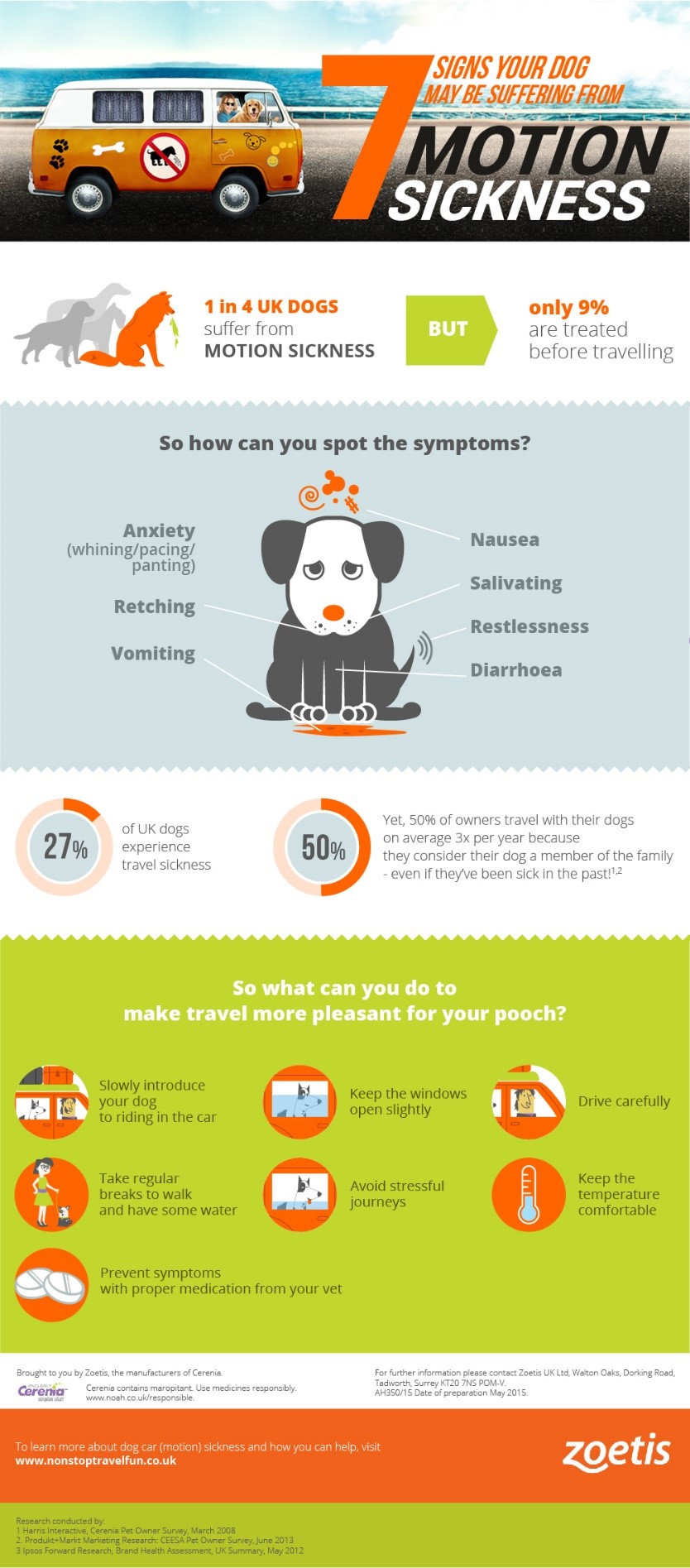
Why is it so important to keep on top of your dog&...
When you first have a tiny puppy to protect, vaccinations are at the forefront of your mind; you do everything you can to protect ...
19 May 2021
Read More
Does the prospect of jumping in the car fill your dog with anxiety in the form of whining, pacing or panting? Perhaps they get restless, or begin salivating (more than usual!) or even become nauseous? As a dog owner, you want to be spontaneous and flexible, but if your dog suffers from motion sickness it can greatly limit your ability to travel. And you wouldn’t be alone. In the UK, 1 in 4 dogs suffer from dog travel sickness, but only 9% are treated before travelling.
Symptoms
So how can you spot dog travel sickness? And if so, what can you do to help them?
We’ve put together a simple infographic so you can easily spot the symptoms of motion sickness in your dog. Among the signs are:
If your dog experiences any of these symptoms, it could be a sign of a greater problem. For the full list of dog travel sickness symptoms, you can download the infographic here:

Even though 27% of UK dogs experience dog travel sickness, you may be surprised to learn 50% of owners still travel with their dogs on an average of 3 times a year. And that makes sense. After all, most dog owners consider their dog a member of the family and couldn’t stand the thought of leaving poochy behind – even if it means they may get sick!
How to help
So what can you do if your dog is exhibiting one or more signs of travel sickness? Well, you’ll be glad to know there are a number of ways to make travel more pleasant for your pooch.
One method is to slowly introduce your dog to riding in the car, taking it step by step. If your dog gets anxious simply going near the vehicle, start by rewarding them for walking by. Offer them another reward once they make it inside, then with the door closed and finally with that car started. For the complete list of solutions, view our infographic here.
Behavioural therapy can be beneficial but it requires a lot of time and work. The good news is motion sickness can easily be prevented thanks to medication that has been specially developed for dogs. It is reliable and long-lasting, without making your dog sleepy, and allows you to remain flexible and mobile. Just ask your veterinarian at your next visit, he or she will be happy to advise you!
Dog travel sickness can be an inconvenience to the whole family, not to mention a huge discomfort for your pet. By recognizing the signs and seeking solutions now, you can enjoy a summer full of non-stop travel fun!
For more guidance on your dog, in cases dog travel sickness, fleas, ticks or otherwise, sign up to the PetDialog newsletter today.
Disclaimer: The information in this post is the opinion of the writer and not that of Zoetis UK Limited. Clinical information provided on this site is intended solely for educational context and is not a substitute for the views, advice and recommendations of a veterinarian. For advice on animal health, please consult a veterinarian.

When you first have a tiny puppy to protect, vaccinations are at the forefront of your mind; you do everything you can to protect ...
19 May 2021
Read More
Dogs with arthritis can have good days and bad days, much like their human counterparts, and with any chronic condition there may ...
09 February 2021
Read More
Arthritis is a progressive, and painful disease affecting one or more joints.
09 February 2021
Read More